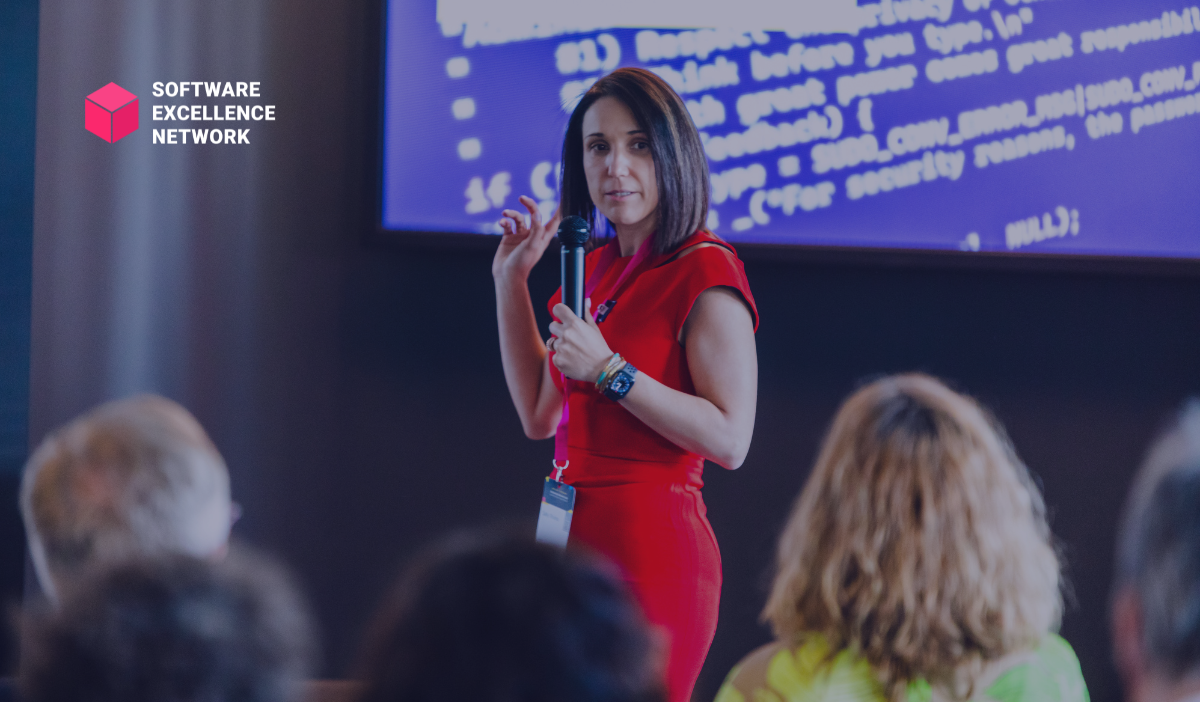
At the Envisioning Tomorrow’s Code executive exchange, Sally Trivino, Senior Partner at EY and an expert in forensic technology, delivered a thought-provoking masterclass that challenged conventional wisdom on software development, artificial intelligence (AI), and the responsibilities of modern technology leaders. With nearly two decades of experience in forensic technology, Trivino provided an insightful perspective on how AI is transforming coding, why CIOs must evolve beyond their traditional roles, and what ethical considerations must shape the future of enterprise technology.
One of the most striking ideas explored in Trivino’s session was the claim that coding as a skill may soon be obsolete. AI’s rapid advancements in software generation raise an important question: Is traditional programming still essential, or is it evolving into something entirely new?
Trivino illustrated this transformation with a real-world scenario—an IT professional using generative AI to troubleshoot a data-processing issue. Initially, the AI-generated solution contained errors, but after refining its prompts, the user received the correct code. Notably, the AI even acknowledged its earlier mistake. This example encapsulates both the strengths and limitations of AI-driven coding: while AI can accelerate development, human expertise remains indispensable for ensuring accuracy, security, and optimal performance.
AI is shifting the role of software engineers from direct code writing to a more strategic function—reviewing, validating, and optimizing AI-generated solutions. Rather than eliminating programming, AI is redefining it. This shift mirrors broader changes in IT leadership, particularly the CIO’s evolution from a hands-on technologist to a business strategist.
Over the past four decades, the CIO’s responsibilities have evolved dramatically, reflecting the increasing integration of technology into business strategy. Trivino outlined five distinct eras of CIO leadership:
This historical trajectory underscores the reality that today’s CIOs must operate at the intersection of technology and business leadership. No longer confined to managing IT systems, they are expected to drive digital transformation, harness AI-driven efficiencies, and anticipate technological risks—all while maintaining ethical and strategic oversight.
The increasing reliance on AI in software development does not mean that traditional programming is becoming irrelevant. Rather, AI and software engineering are becoming deeply intertwined disciplines. AI itself is built on software—leveraging neural networks, machine learning algorithms, and natural language processing—all of which require meticulous coding, testing, and refinement.
Trivino highlighted a cautionary example of software vulnerabilities: a security flaw in a widely used Unix compression library that exposed critical systems to potential cyber threats. This case underscores the ongoing need for rigorous programming standards, ethical oversight, and accountability. In an era where AI-generated code is becoming commonplace, software developers and CIOs must remain vigilant in ensuring security, transparency, and quality control.
The responsibility of technology leaders extends beyond simply adopting AI tools. They must also establish frameworks that ensure AI-generated code is reliable, auditable, and aligned with business objectives.
Bias in AI systems is an increasingly pressing concern. Trivino cited high-profile cases where AI-driven decision-making exhibited systemic bias—such as recruitment algorithms that favored certain demographics or voice recognition systems that performed inconsistently across different users. These examples highlight the ethical dilemmas that CIOs and developers must confront.
Addressing bias requires more than technical fixes; it demands a proactive, ethical approach to software development. Trivino outlined key principles for responsible AI governance, including:
Implementing these principles is not merely about regulatory compliance—it is essential for maintaining trust in AI-powered technologies. As AI continues to influence enterprise IT, ethical oversight must become a core responsibility for CIOs.
Trivino concluded her masterclass with a clear message: Technology leadership is no longer just about deploying the latest innovations—it’s about ensuring they are used responsibly. CIOs and IT executives must champion ethical frameworks, enforce accountability in AI-driven processes, and take an active role in shaping the future of digital transformation.
The intersection of AI, coding, and enterprise IT presents both opportunities and challenges. The organizations that succeed in this new landscape will be those that strike the right balance—leveraging AI for efficiency while maintaining the human oversight necessary for strategic decision-making and ethical integrity.
For today’s CIOs, the question is no longer whether AI will change software development—it already has. The real question is how they will lead their organizations through this transformation while ensuring that technology serves business goals, societal needs, and ethical standards.
Note to the reader: This expanded article presents an expanded analysis of Trivino’s insights, offering CIOs a thoughtful exploration of the evolving landscape of AI-driven software development and its implications for enterprise strategy. But to understand Trivino's viewpoints and their full context, we recommend you watch the presentation below. If you have any questions, please do not hesitate to reach out.
This article provides a journalistic summary of the ideas shared by Sally Trivino during her presentation. While we’ve highlighted the key concepts and innovations she discussed, the full depth of her insights and examples can only be appreciated by watching the complete session. If you’re intrigued by these ideas and want to hear them explained directly by the speaker, we encourage you to watch the full video of her presentation. If you have any questions or concerns, please contact us.
These Stories on Events/Webinars
August-Bebel-Str. 26-53
14482 Potsdam, Germany
hello@seerene.com
+49 (0) 331 706 234 0
Generative AI Seerene GmbH
August-Bebel-Str. 26-53
14482 Potsdam, Germany
hello@seerene.com
+49 331 7062340